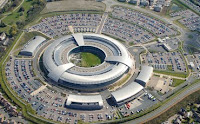 Espionage Research Institute (ERI) 2011 Conference
Espionage Research Institute (ERI) 2011 Conference
The 2011 ERI Conference brought together a group of leading edge counterintelligence practitioners that respond to crisis situations and espionage incidents from both foreign and domestic threats.
FOR IMMEDIATE RELEASE
Sept 18, 2011 - The 2011 ERI Conference brought a group of these counterespionage agents out of the shadows for a brief moment to share information with their brethren. The threats levied against corporations from either electronic surveillance (bugs) or the latest threats from malware (Advance Persistent Threats) require these specialists to keep abreast of the latest threats. Adhering to ERI’s motto: "The Biggest Mistake That We Can Make Would Be To Miss The Changes", and their membership meets annually to ensure they remain aware of the changes in the espionage industry and can effectively detect threats.
This year’s keynote address from Jarrett Kolthoff, CEO – SpearTip, a former U.S. Counterintelligence Agent, addressed the threats levied against corporations from both foreign and domestic competitors. Mr. Kolthoff provided insight on how many corporations are responding to these incidents and are holding the rogue employee and/or competitor accountable for their actions.
Other presenters at the conference brought some of their latest technology, such as the OSCOR GREEN from Research Electronics International (REI) The OSCOR Green was designed for commercial applications to detect illicit eavesdropping signals, perform site surveys for communications systems, conduct radio frequency (RF) emissions analysis, and investigate misuse of the RF spectrum.
AIR Patrol Corp, shared their latest in cellular detection technology.
Global TSCM Corp brought their latest technology and gave a TSCM products demo.
Professional Development TSCM Group Inc., presented on the Kestrel TSCM TM Professional Software a Canadian designed and developed TSCM total RF collection and analysis solution; scalable to address all operational threat levels.
Walleye Technologies, Inc. presented their new portable microwave imaging device for a wide variety of applications that require handheld imaging and microwave capabilities.
Other notable presentations from ERI members and TSCM Specialists included:
"The Future of TSCM" by Steve Whitehead, of Eavesdropping Detection Solutions. Gauteng, South Africa.
"GSM & Hybird Cellular Threats" by Jason Dibley & James Williams of QCC Interscan Ltd. London UK.
"TSCM" Inside Out" by Julian Claxton of Jayde Consulting Pty Ltd. Sydney, Australia
"Computer Security" by Dr. Gordon Mitchell of Future Focus, Inc. Washington State. USA.
"TSCM Challenges Today" by Ed Steinmetz of Steinmetz Associates. Philadelphia, Penn.
"Power Line Analysis using a SDR" by Michael Dever of Dever Clark & Associates of Canberra, Australia.
"Security Podcast Resources and building a network VoIP Tap" by Charles Patterson of Patterson Communications. Tarrytown, NY.
Glenn Whidden, President of ERI and a former CIA officer, created ERI in an effort to bring together TSCM specialists, security practitioners, businessmen and corporate security executives to share information about hostile global espionage activity directed against business and industry. This year’s event was chaired by J.D. LeaSure, President/CEO of ComSec LLC, which resulted in another tremendous success in bringing together this international consortium of "spy hunters". J.D. will also Chair next year’s event at ERI's Annual Membership Conference (To Be Announced). The conference will continue to highlight current and emerging threats, detection methods and effective countermeasures.
Each year, U.S. businesses lose billions of dollars to Corporate Espionage, Industrial Espionage and Economic Espionage. ERI's membership consists of a small, exclusive group of global Technical Surveillance Countermeasures (TSCM) and Cyber Counterintelligence experts whose private businesses are tasked with detecting and neutralizing the threats against your corporation.
For more information please contact ERI Conference chairman, J. D. LeaSure at: jd.leasure@espionageresearchinstitute.org or Ph: 703-910-3330
The Espionage Research Institute is dedicated to collecting and promulgating information on hostile espionage activity, which is done through the process of accepting, screening and editing reports of hostile activity as they are received from ERI Associates and its Advisors.
http://www.espionageresearchinstitute.org
 kmov.com
kmov.com



























